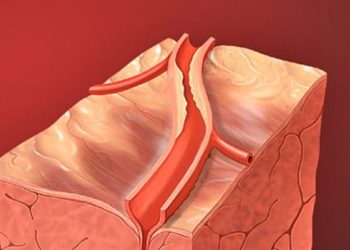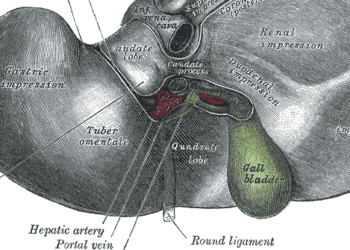Evolocumab plus standard therapy reduces LDL, cardiovascular events compared to standard anti-cholesterol therapy alone [OSLER-1 & OSLER-2 Trials]
1. Compared to those treated with only standard therapy, patients treated with the addition of evolocumab, a monoclonal antibody that inhibits activity of proprotein convertase subtilisin-kexin type 9 serine protease (PCSK9), experienced significantly lower serum LDL levels and lower rates of cardiovascular events at 1 year compared to placebo.
2. There were similar rates of most adverse events in patients who were and were not treated with evolocumab, although neurocognitive events were reported more frequently in the evolocumab group.
Evidence Rating Level: 1 (Excellent)
Study Rundown: Previous studies have demonstrated that proprotein convertase subtilisin-kexin type 9 serine protease (PCSK9) activity is associated with plasma levels of LDL cholesterol. In recent years, monoclonal antibodies inhibiting the activity of PCSK9 have shown potential in substantially reducing serum cholesterol levels; in a recent phase 3 trial, evolocumab usage was associated with a 60% decrease in LDL levels. The Open-Label Study of Long-Term Evaluation against LDL Cholesterol 1 (OSLER-1) and OSLER-2 were designed to assess long-term safety, adverse event profile, and LDL reduction with evolocumab therapy, in addition to assessing its effect on cardiovascular outcomes. About 70% of the patients enrolled in the OSLER trials were being previously managed with statins. In summary, this trial demonstrated similar rates of adverse events in patients taking evolocumab and those who did not. While the overall rate of neurocognitive events was low between arms of the trial (<1%), these events were reported more frequently in the evolocumab group. The rates of serious adverse events were no different between the two groups, and only 2.4% of patients taking evolocumab experienced adverse events that led to drug discontinuation. Compared to standard therapy, patients treated with evolocumab (in addition to standard therapy) experienced a 61% reduction in LDL levels at 12 weeks, which remained consistent over time; those treated with evolocumab experienced significantly lower rates of cardiovascular events at 1 year.
Click to read the study, published today in NEJM
Click to read the accompanying editorial
Relevant Reading: A 52-week placebo-controlled trial of evolocumab in hyperlipidemia
In-Depth [randomized controlled trial]: The OSLER-1 and 2 trials were open-label, randomized, controlled studies that enrolled patients who had participated in previous phase 2 and phase 3 trials, respectively, of evolocumab. Patients were randomized in a 2:1 ratio to receive evolocumab plus standard therapy (i.e., the evolocumab group) or standard therapy alone based on local guidelines. Evolocumab was administered at 420 mg monthly subcutaneously or 140 mg every 2 weeks. The primary endpoint was the incidence of adverse events. Secondary endpoints included the percentage change in the LDL cholesterol, while the incidence of cardiovascular events (e.g., death, myocardial infarction, unstable angina, cerebrovascular events, heart failure requiring hospitalization) was a pre-specified exploratory outcome.
A total of 4465 patients were enrolled in the two trials and followed for a median of 11.1 months. Approximately 70.1% of patients were taking statins at the start of the OSLER studies. Adverse events were noted in 69.2% of patients receiving evolocumab and 64.8% of those on standard therapy. The rates of serious adverse events were 7.5% in both groups. The rate of adverse events leading to discontinuation of evolocumab was 2.4%. Compared to standard therapy, patients in the evolocumab group experienced a 61% reduction (95%CI 59 to 63%; p<0.001) in serum LDL levels at the 12-week visit, a difference which persisted over time. At 1 year, the rate of cardiovascular events was significantly lower in the evolocumab group (HR 0.47; 95%CI 0.28-0.78), with cumulative incidence diverging progressively over time.
Image: PD
©2015 2 Minute Medicine, Inc. All rights reserved. No works may be reproduced without expressed written consent from 2 Minute Medicine, Inc. Inquire about licensing here. No article should be construed as medical advice and is not intended as such by the authors or by 2 Minute Medicine, Inc.








